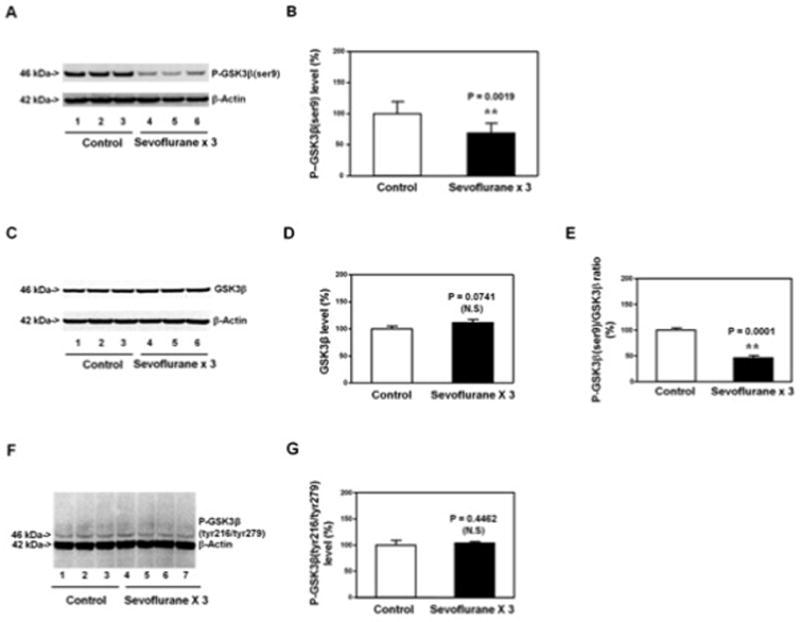Figure 3. Anesthesia with 3% sevoflurane two hours daily for three days in P6 WT mice decreases P-GSK3β(ser9) levels, but does not alter the levels of GSK3β and P-GSK3β(tyr279/tyr216), in hippocampus of the mice.

A. Anesthesia with 3% sevoflurane two hours daily for three days in P6 mice decreases the levels of P-GSK3β(ser9) in the hippocampus of the mice as compared to the control condition. There is no significant difference in β-Actin levels in the hippocampus of the mice between the sevoflurane anesthesia and control condition. B. Quantification of the Western blot shows that the sevoflurane anesthesia decreases P-GSK3β(ser9) levels as compared to control condition. C. Anesthesia with 3% sevoflurane two hours daily for three days in P6 mice does not significantly alter the GSK3β levels in the hippocampus of the mice as compared to the control condition. There is no significant difference in β-Actin levels in the hippocampus of the mice between the sevoflurane anesthesia and control condition. D. Quantification of the Western blot shows that the sevoflurane anesthesia does not significantly alter the GSK3β levels as compared to the control condition. E. Quantification of the Western blot (A and C) shows that the sevoflurane anesthesia decreases the ratio of P-GSK3β(ser9)/GSK3β as compared to the control condition. F. Anesthesia with 3% sevoflurane two hours daily for three days in P6 mice does not significantly alter the P-GSK3β(tyr279/tyr216) levels in the hippocampus of the mice as compared to the control condition. There is no significant difference in β-Actin levels in the hippocampus of the mice between the sevoflurane anesthesia and control condition. G. Quantification of the Western blot (F) shows that the sevoflurane anesthesia does not significantly alter the P-GSK3β(tyr279/tyr216) levels as compared to the control condition. P, phosphorylated; ser9, serine 9; tyr279, tyrosine 279; tyr216, tyrosine 216; GSK-3β, glycogen synthase kinase 3β. N = 6 in each group.
